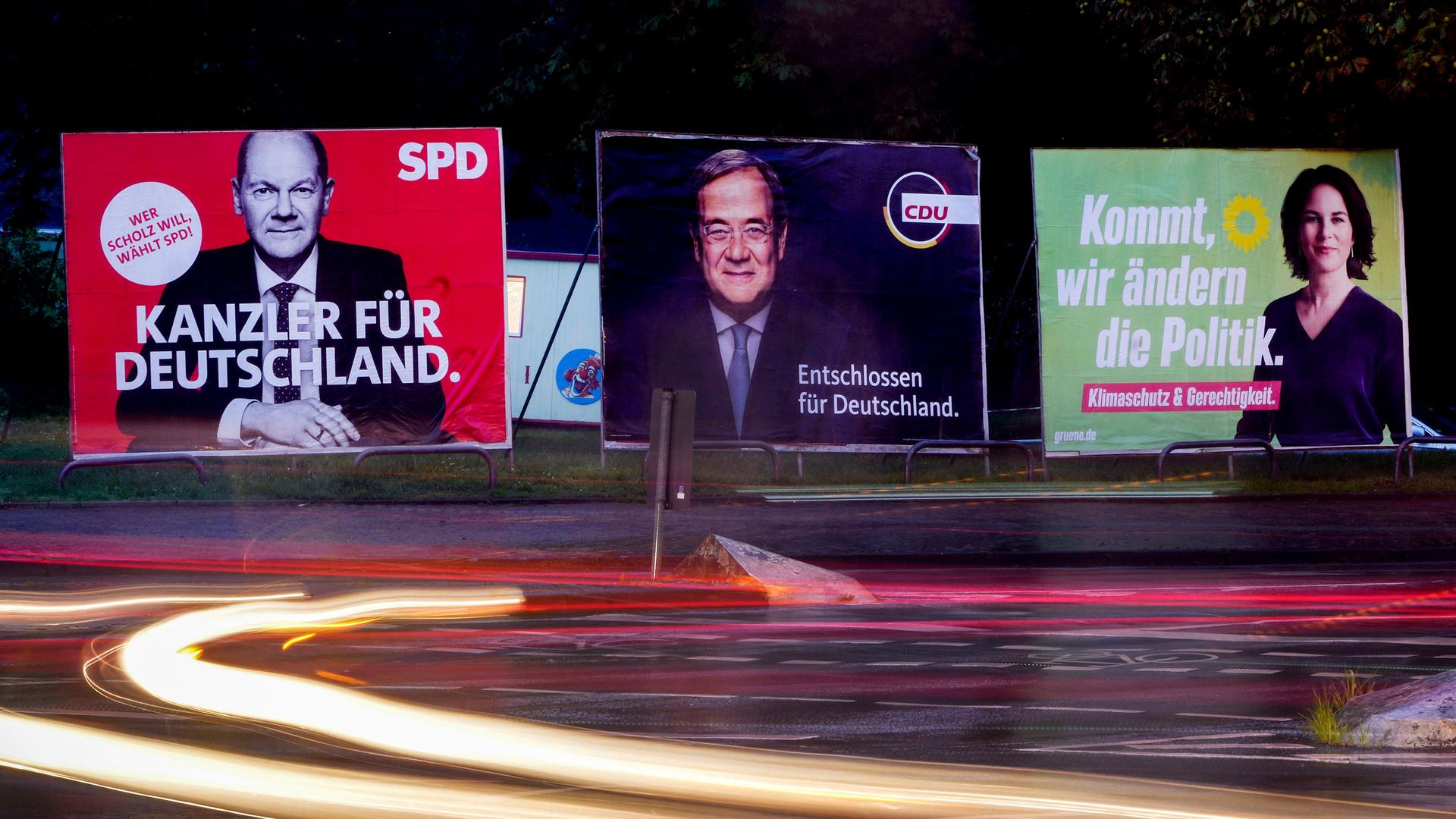German voters head to the polls on Sunday for parliamentary elections that will determine Chancellor Angela Merkel’s successor.
Much of Germany’s electoral system differs from the United States, but something familiar has cropped up during the German campaign: false claims of election fraud and conspiracy theories about the security of voting by mail. Experts say those making the claims have been influenced by the US’ “stolen election” narrative from 2020.
Related: Bolsonaro rallies his base with voter fraud claims ahead of elections
“I think it’s important to have a focus on how global these digital communities are,” Miro Dittrich, a researcher with the German nonprofit Center for Monitoring, Analysis and Strategy (CEMAS), who focuses on the far-right on the internet.
Dittrich noted that claims of “rigged Dominion voting machines” in Germany spread through right-wing social media during a state-level election in Saxony-Anhalt in June, even though Germany doesn’t use voting machines.
Related: Pedro Molina’s fight for fair elections in Nicaragua through cartoons
“These alternative realities that are created in the United States, and are really popular there, have a huge impact on countries that the US is allied with. And [the US] not dealing with these problems in the right way has huge consequences for us.”
“These alternative realities that are created in the United States, and are really popular there, have a huge impact on countries that the US is allied with. And [the US] not dealing with these problems in the right way has huge consequences for us,” Dittrich said.
Researchers with ISD Global, a think tank that studied disinformation in the June Saxony-Anhalt elections, documented a post shared by André Poggenburg, a right-wing politician with the Alternative for Germany (AfD) party, alleging voter fraud in Germany that featured an image from a US polling place. They also found that within 24 hours of Poggenburg’s post, an estimated 2.6 million Twitter users engaged with similar posts including the hashtags “#Wahlfrug” or “#Electionfraud,” despite no legitimate reports of voter fraud.
Related: French generals’ letter warning civil war prompts political response
“I think it shows the potential for the use of this narrative in a more important general election,” Dittrich said of the spike in election disinformation in Saxony-Anhalt.
Oliver Janich, a right-wing broadcaster, released a video titled, “Massive electoral fraud in Saxony-Anhalt: the USA as a model.”
While Germany has seen some claims of voter fraud in past elections, as in the US, vote-by-mail has become a new focus.
Germany is expecting a record increase — a possible doubling — of total votes by mail amid the pandemic.
And despite the fact that postal voting has been operating in Germany since 1957 without incident, in January, one AfD member of Parliament spoke from the chamber floor about his doubts about the security of the system. Others of his party have spread similar claims, urging their supporters to vote in person.
Related: Displaced Syrians in Turkey say Syria’s elections are a sham
‘Not comparable’
The scale of disinformation in Germany is vastly different than in the US — where 44% of Americans were not fully confident about the election results — one November 2020 poll found.
However, the only political party in Germany that has pushed election disinformation is AfD — with just 12% of Bundestag seats.
“You really can’t compare it. …Relatively speaking to the German population, it is definitely still a fringe movement that gets this artificial amplification from certain pockets within the German spectrum.”
“You really can’t compare it,” said Helena Schwertheim, senior digital policy research manager with ISD Global.
“Relatively speaking to the German population, it is definitely still a fringe movement that gets this artificial amplification from certain pockets within the German spectrum,” she said.
Germany’s top election official Bundeswahlleiter Georg Thiel said in a press conference earlier this month that he sees the US and German systems as “essentially not comparable” and therefore is not worried about a similar scale of election fraud claims.
Germany, he said, has a “very stable” and “completely transparent process across all areas.”
Notably, Germany does not use voting machines, only counts ballots cast by 6 p.m. without exception, and has a much more centralized process of reporting results.
Even so, his office has maintained a “fake news” correction page, to counter election-related disinformation spread on the internet.
Looking ahead to Sunday, Michael Georg Link, a member of Parliament from the Free Democratic Party, is also confident that the German system will not fall victim to the same scale of disinformation as the US.
Link led a team to observe the 2020 US election from OSCE, a global security-oriented intergovernmental organization.
“Confidence in the election process, including postal voting, is high.”
“Confidence in the election process, including postal voting, is high,” he said. “This is not only due to the long tradition of postal voting in our country. The electoral offices and also the postal services had enough lead time to prepare for the presumably high number of postal votes.”
Still, the rise of fake news and conspiracy theorists targeting trust in the system presents a “real danger,” he said.
Leading up to and after the election, Schwertheim said, she and her team will remain “vigilant.”
“We’re going to see an increase in this narrative to plant further distress into the system, so then it can be acted upon after the election,” she said.
Our coverage reaches millions each week, but only a small fraction of listeners contribute to sustain our program. We still need 224 more people to donate $100 or $10/monthly to unlock our $67,000 match. Will you help us get there today?
